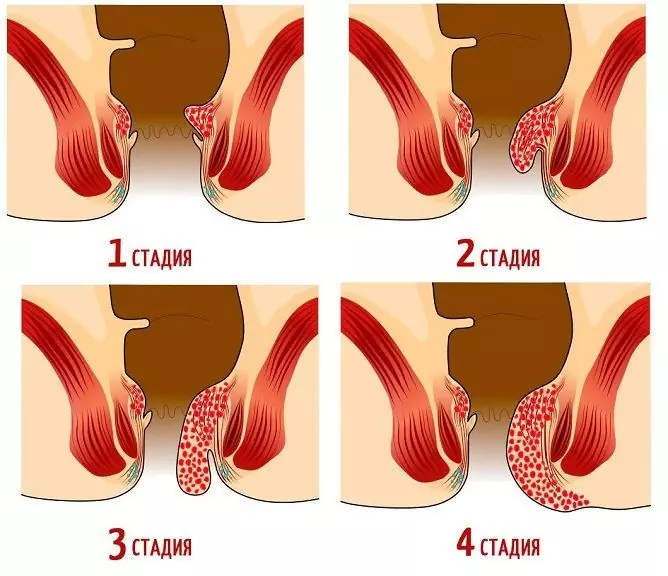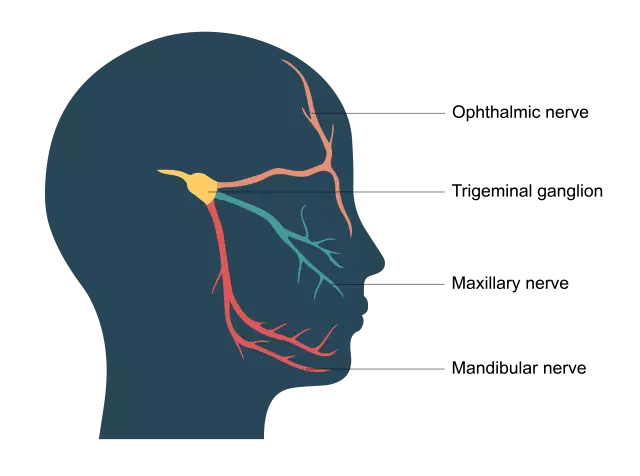- Author Rachel Wainwright wainwright@abchealthonline.com.
- Public 2023-12-15 07:39.
- Last modified 2025-11-02 20:14.
How much feces do you need for analysis
The content of the article:
- Stool analysis
- How much feces do you need for analysis
-
Most commonly prescribed stool tests
- Coprogram
- Bacteriological analysis of feces
- Analysis for helminth eggs
- Occult blood test
- How to take a stool test
How much feces are needed for analysis must be checked with the doctor when receiving a referral from him. There are several types of study of feces, each of which requires a different amount of biomaterial.

For stool analysis, it is sufficient to fill one third of the disposable container with material.
Stool analysis
Feces are the end product of food digestion, which is excreted during the bowel movement. Feces consist of food debris, bile, digestive enzymes, bacteria (make up about 1/3 of the dry residue). Normally, an adult excretes 100-250 g of feces per day, the amount depends, first of all, on the nature of the food consumed and the presence of pathological processes in the body.
Stool analysis is a laboratory study of stool, which is aimed at detecting various disorders of the gastrointestinal tract in adults and children. The study makes it possible to diagnose pathologies of the digestive tract, helminthic invasions, control the treatment, and is also prescribed for prevention.
The color of the stool is normally brown, the consistency of the stool should be soft, but shaped, pathological impurities are normally absent. From blood cells in feces, single leukocytes can be determined, from bile pigments - only stercobilin. An admixture of blood, pus, mucus, as well as the presence of parasites and / or their eggs indicates a disease.
The main indications for the appointment of one or another fecal analysis are pathological conditions: stool disorders (constipation, diarrhea or their alternation), abdominal pain, nausea and vomiting, flatulence, false urge to defecate, weight loss, anemia of unknown etiology.
How much feces do you need for analysis
For stool analysis it is not necessary to collect a full container of material, usually the container is filled to about 1/3 of its volume. For standard laboratory testing, 15 g of material is usually sufficient. For the analysis of feces in children (including infants), it is advisable to deliver at least 10 g to the laboratory.
How much material exactly needs to be collected for a particular feces analysis, how to properly prepare for the study, it is advisable to ask the doctor who prescribed the feces analysis, since the requirements in different laboratories may differ. After receiving the results, the doctor will also help to decipher them correctly.
Most commonly prescribed stool tests
A laboratory study of feces makes it possible to identify violations of the enzymatic and acid-forming functions of the stomach, as well as the functions of the pancreas, liver, to determine the accelerated evacuation from the stomach and intestines, to reveal dysbiosis, impaired absorption in the intestine, inflammatory, allergic processes. In the presence of disorders of the gastrointestinal tract, the analysis of feces allows conclusions to be drawn about the nature of the pathology.
Coprogram
General analysis of feces (coprogram, clinical analysis of feces) is the most frequent study, it is prescribed for suspected diseases of the digestive system, for the purpose of clarifying diagnostics, as part of a preventive examination, in order to control the therapy of diseases of the gastrointestinal tract.
The coprogram includes:
- macroscopic examination of feces (color, consistency, shape, presence of pathological impurities);
- determination of the chemical composition (soluble proteins, bilirubin, stercobilin);
- microscopic examination, during which the constituent elements of feces (muscle fibers and connective tissue, leukocytes, erythrocytes, parasite eggs, plant starch) are assessed.
Bacteriological analysis of feces
If you suspect an infectious and inflammatory bowel disease, a bacteriological study is prescribed. Its purpose is to detect and identify an infectious agent and determine its sensitivity to antibacterial drugs.
Analysis for helminth eggs
The analysis of feces for worm eggs is often prescribed to children, since it is in this age group that the incidence of helminthiases is highest. This is due to children's non-observance of personal hygiene rules. If a negative result is obtained, the study is repeated (up to three times) with an interval of five days, this is due to the peculiarities of the life cycle of the parasites.
Occult blood test
This study is used to diagnose latent bleeding, in particular, in the presence of anemia of unknown etiology. After 50 years, it is recommended to take a fecal occult blood test at least once a year, since at this age the risk of developing intestinal neoplasms increases, and the study helps to identify them at an early stage.
How to take a stool test
To obtain the most reliable results of the analysis of feces, you should properly prepare for the delivery of material for the study.
To carry out the coprogram, one should not change the usual diet, however, 1-2 days before the study, it is recommended to abandon foods that can irritate the intestines, contribute to the development of flatulence, constipation, and also laxatives. For other tests, for example, for an occult blood test, more serious dietary preparation may be required (depending on the test method used), this should also be agreed with the doctor.
Some medications can distort the study result, therefore, it is advisable not to use any medications before taking the analysis, however, the advisability of canceling the prescribed medications can only be assessed by the attending physician.
Stool examination is not performed after ultrasound, X-ray, or endoscopic examination. Women are not advised to have feces tested during menstruation.
Feces for analysis are collected after a spontaneous bowel movement, the use of an enema or laxative to stimulate it is prohibited, even if there is constipation. In case of problems with bowel movement, it is recommended to increase the amount of fiber and fluid in the diet the day before, which, unlike enemas and laxatives, will not distort the study result. It is allowed to induce defecation with the help of laxatives only in some cases when submitting material for analysis for helminth eggs, but this is done only as directed by a doctor.
The collection of material for analysis is carried out, if possible, in the morning. Before defecation, you should urinate, then hold the toilet of the external genital organs and the perianal region. The feces are collected in a disposable plastic container designed for this purpose, using the attached spatula spoon. For tests for occult blood and eggs, the worm material is collected from different sites. If there are blood and / or mucus impurities in the stool, this material should be selected for research.
When collecting material from the diaper of small children, only the top layer of feces is suitable.
Feces that have come into contact with cleaning agents and / or disinfectants should not be taken for analysis. When collecting material, urine and discharge from the genitals should not enter the feces.
It is necessary to deliver the collected material to the laboratory within a few hours after receipt. If it is impossible to do this (for example, if the feces were collected in the evening), it can be stored for no more than eight hours in a hermetically sealed container in the refrigerator at a temperature of +4 to +8 ° C. You cannot freeze! When taking a stool test for dysbiosis, it is advisable to deliver the material to the laboratory within 30 minutes, but not more than 2 hours after defecation.
YouTube video related to the article:

Anna Aksenova Medical journalist About the author
Education: 2004-2007 "First Kiev Medical College" specialty "Laboratory Diagnostics".
Found a mistake in the text? Select it and press Ctrl + Enter.






